Creating Triumph From Tragedy With Charlotte Fowles
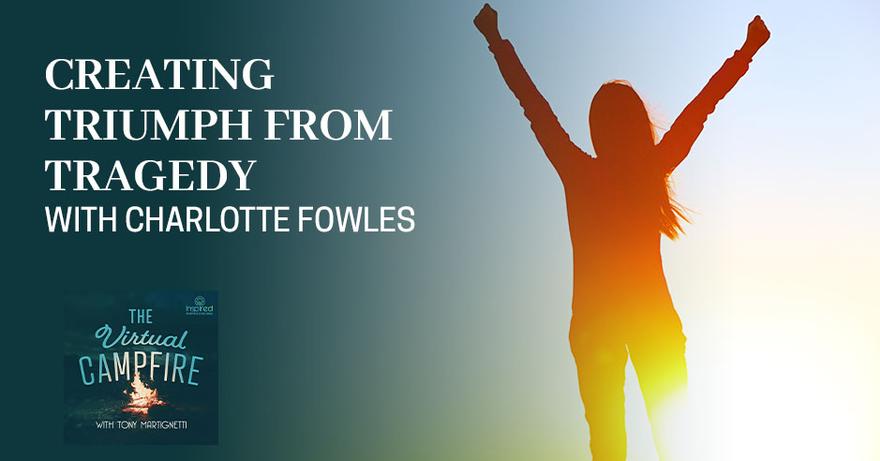
Every challenge you face in your life is one step forward in developing resiliency. But isn't it better to become stronger and prepared for these unfortunate events even before they come your way? Tony Martignetti is joined by Executive Adventurer Charlotte Fowles to share her work in helping lost, frustrated, and confused corporate leaders redefine their purpose and passion. She looks back on building a courageous self after overcoming cancer, several miscarriages, and even death itself. Charlotte talks about the flashpoint that motivated her to make a change in her career, explaining how her adventurous spirit became clear after learning to free dive and overcoming a fear of heights.
---
Listen to the podcast here:
Creating Triumph From Tragedy With Charlotte Fowles
It is my honor to introduce you to my guest, Charlotte Fowles. She is also known as the Executive Adventurer. She helps corporate leaders who are frustrated, lost, or bored to rediscover their purpose, passion, and fun without sacrificing their current success. She is an author and public speaker, as well as a coach. Also, one to practice what she preaches, she has spent a lot of her life pursuing and pushing herself way outside of her comfort zone in pursuits, such as free diving, scuba diving, marathon running, solo hiking whilst also on chemotherapy, and crossing the Australian outback for months in an ancient 4x4 truck.
After enduring over a decade of significant personal trauma, she is an expert in resilience in creating triumph from tragedy and living life in spite of this. She brings this epic resilience to her coaching. She's passionate about mental wellness and the outdoors, and is fascinated by the combination of these elements that she can bring about incredible change. Charlotte, I want to welcome you to the show.
Thank you so much, Tony. It is a pleasure to be here.
I can't wait to dig into your story. You're a powerful person. Even on the intro alone, I feel like we've gotten so many great insights about who you are and what you're all about. Power's already flowing through you. As the way these things work on the show, we talk about what's called flashpoints in people's stories. There may be one or there may be many. We're going to give you the space to share what you're called to share, and along the way, we'll pause and see what's showing up. With that, I'm going to pass it out to you.
Where would you like me to start?
It can be as early as you like or wherever you feel ready to go.
I'm going to dive right into the last several years. The last several years had many flashpoints. When I describe it, I talk about most people are lucky enough to suffer at least one of these in their lifetime. I had them all within those years. That was a long, hard period, but an important thing is that there was so much great stuff in there, too. A lot of that was almost like my defiance in spite of some of this stuff. It's such a story of hope. There was a flashpoint before that, but looking back on those years, I can draw out things that were so great and that I still draw from now. That's why I want to dive right in there.
I'll start. It's been years since I returned home from Australia, where I had been on an adventure for years. My dad died one month after I returned home. I hadn't seen him in years and that was clearly a huge tragedy for me. He was an incredible man and a wonderful father. I was blessed enough to have an incredible family life. That was obviously devastating. That seemed to set off a chain of events, which included quite a lot of deaths of people close to me, family members, and each of those is a tragedy.
Bringing out your most vulnerable self can help you get past the things holding you back.
When I'm talking about all of these things, I don't want it to seem like I'm blasé or I'm brushing the side, but each one of these things is a show in itself. The subject of grief and loss and all of that, let alone all the others. I will list them and we can come back to some. I would encourage anyone who's reading, if any of this speaks to you, please reach out and contact me, and I'll happily have another conversation or help wherever I can with someone who's been through something similar because I often find that's comforting.
That happened after a couple of years, myself and my husband at the time, we decided to start trying for a family. We were lucky enough to become pregnant, but it was not straightforward. I ended up suffering multiple miscarriages. I'm still childless now. The equally tragic thing was the miscarriages. They didn't happen naturally. They would stay in there, so they would not be alive, but they wouldn't come out. I would have to have operations after each one and they were obviously traumatic each time.

Within that couple of years, my best friend in the world, who's like my sister and I've known her since I was two. This incredible light of a ball of energy, Mel, sadly was diagnosed with breast cancer and is very aggressive. Unfortunately, within less than two years, she died. She was aged 36 and 27 days. She died about a week after my third pregnancy loss and operation. This was all happening relentlessly, these things, this loss, and grief. I had another operation on my womb. They perforated my womb during the operation. It was healed, but I had to stay in hospital the same day my granddad died.
It just didn't stop. After a while, I put a stop to some of it myself and I said, "I'm not going to think any more about the babies." I'm going to focus on what the body can do and not what it can't. There is so much shame associated with miscarriage. We are told to keep our pregnancy secret for the first three months in case something happens, but that's when you need the support. People feel guilty and even the word miscarriage implies something wrong with you.
I share a lot. A lot of that was self-preservation. This is back in the day when it was all Facebook. We didn't have all the other things we have now. People would message me they say, “That was helpful. I'm so sorry, but that's helped me. I've suffered, too.” It was a great tool for sharing in helping others and me, too. I decided I would raise awareness for this association. It's a very small support association for people going through pregnancy loss called the Miscarriage Association here in the UK. I said I'm going to talk about why I'm doing this huge challenge and I’m going to raise loads of money.
It's one of these great, big, muddy obstacle course races things, which is like a half marathon. It's quite a fast run and you have to get fit because you have to do it as a team. There are loads of things to overcome. We did that and I raised an incredible amount well over £3,000, which is probably in the region of $5,000, for this tiny charity. Unfortunately, the event itself was woefully run and administered. They're not a very good company. Half a mile from the end of the obstacle course, they had a faulty obstacle. I fell nine-foot and I broke my leg in two places. Out of tragedy doing something positive, the irony was not lost on me. As they say, no good deed goes unpunished. There I was, leg broken in two places in a hospital, but I was like, "I'm going to rinse it for some more sponsorship and make everyone feel guilty and give me more money for the charity.” That worked. I had to learn to walk again.
Within this time, I was assessing what I wanted to do further to the job I was doing at the time, which was in corporate communications. I was working in the central government. I had worked with some of the most powerful people in the UK at the time, secretaries of states, and people like that. I decided to become a communications consultant and go part-time, so I was working three days a week, which was incredible, but this all happened, so that was a positive change. I was using that time with my broken leg off work to reflect and build. I was able to prepare for an interview, and then I got my first contract from a consultancy, which was great. Good things were happening. The leg, I could have done without that. I have now a titanium rod knee to ankle and screws all in my leg because the break was so bad. I still get pain in the morning, so I never forget that it's there. I can still do all the things I wanted to do. That was that.
Things are ticking on and then we decided to get back on this whole baby thing and see what's going on there. Unfortunately, it's a very traumatic place to be. It is the only trauma I can think of, and I could be wrong, where people encourage you to return to the scene of your trauma like, “Keep trying and going back. Maybe explore other options and do this. What about this intervention?” Everything is invasive and you need a lot of stamina to get through all of that. I wasn't even thinking that way. It was like, "Let's get back on it. Let's see what happens."
Unfortunately, that's clearly not how my brain worked because the first few appointments I was going through plunged me into a severe depression. It was almost like a post-traumatic shock returning to that time. In my early twenties, I had had severe depression twice. I was at least able to recognize it. That was another thing to deal with. When I turned up at the therapists, and I was extremely lucky to be able to afford immediately to go to a private therapist because the UK has incredible healthcare here. It's free at the point of use, but there's a lot of things under strain and mental health is one of the things that doesn't quite get the same attention as physical health. There are long waiting lists for appointments. I went and the therapist said to me, "I'm not surprised you're here." It made me feel somewhat better and not quite so dramatic. I was very disappointed as well in "succumbing" to the depression again. It had been my biggest fear since I had the second lot.
As you and many others will know, the hardest thing is to get well. It's almost easier to stay ill because it's the hardest fight to reclaim yourself, so it doesn't take your identity as well as your capabilities and your courage and all of that. It's a hard old slog to get better, but I was determined as with my physio that I was doing for my leg when I broke that. I was like, "I will do this," but I never thought that I would. I used to say, "If I get ill again, I won't get better." Thankfully, that was not the case. I did, smashed it, and got better.
I was building my business at the time. I'm a coach and that I had been building on the side and been getting qualified, training, and doing that part-time alongside the other stuff. I didn't give that up. I kept that going, and then in 2019 I decided, “This is going to be my year. I'm going to smash this. It's going to be great.” About 6 to 8 weeks into the year, I was diagnosed with stage 3B skin cancer. I laughed. It's not funny. It was the irony again of me resilient, not just picking myself up, but I had loads of plans. I was going to do all these adventures.
I booked to go to this intensive coaching start thing in San Diego. I booked that already and booked the flights. I was planning my 40th birthday extravaganza. I was going to do solo hiking. I was going to go campervan around Europe. I had to rethink slightly and we'll come on to what I did do, so that was sad. It had spread into my lymph nodes, so it ended up that I had a quite major operation to cut the melanoma and the surrounding skin off. It took seven weeks to recover from that, and then I had to start chemotherapy in tablet form, which lasted for a year. Those were the years, but here I am.

In 2020 with a pandemic.
2020 is an awful year. I am not in, by any means, taking anything away from the horror of this year for many people. For me, it has not been quite a breeze, but it's nowhere near those years of relentlessness. It has helped me build a lot of resilience. I used a lot of the tools that I know worked through my work but also that have kept me alive. To deploy those in 2020 hasn't been perfect. Everyone has ups and downs but I've had worse.
When I reflect back on your story, I think about this like you are the picture of resilience. How does one get out of this feeling of like, "Is there hope?" How did you cling to hope? The one thing that came to mind for me as I hear your story is that you almost see that this is your normal. Normal is the situation you're in, but yet, somehow, hope was always there.
It wasn't. I look back now and I look at all the stuff I had. Luckily, I did a lot of writing. Because I shared a lot of stuff, there’s a lot of raw things that I have that remind me how raw and how grief-stricken I was often and how much I was struggling at certain points. Sometimes it didn't feel like hope was always certainly. I read and re-read Michael Neill's book, Supercoach. It's a great book and there's a quote in there about hope. Several years ago, I remember reading it and I almost find it offensive. The point about it is there is never a good reason not to hope. Hope is not a certainty that what you want will happen, he says, and I'm probably butchering it here. He said, "It's a way of living your life almost intentionally whilst you and life negotiate the actual outcome. It's the magical light streams and things like that."
I found that. It's particularly in relation to the children and the baby situation. I was like, "That's not the case. Just go away with your hope there, mister." I could see what he was saying in relation to other stuff but occasionally found it difficult to apply to me. Your right. How did I cling to hope? Part of what I do now is talk a lot about resilience. When I do public speaking, I don't know if you've ever heard, “Our most inspiring story,” but you can't relate it to you or, “Somebody has done this amazing stuff,” but you're like, "It's amazing." What do you take away from it other than like, "That person's amazing?"
Tragedy, pain, and grief are inevitable in some way, but remaining in suffering is a choice.
I try and share what I call inspiration with application. I try and say, "This is all that I've been through and this is how these things helped me, and they can help you. You don't have to suffer these things to get them." I've got these five strategies for resilience. One of the tools within that is we talk about can. You focusing on the can, not the cannot. I've mentioned about how when I was like, "My body won't have these babies at the moment. I shall focus on what it can do, which is get super fit." I couldn't walk, so I was like, "I'll do something else,” which is I can get another job or start another training.
That's something that I did before I ever heard of coaching. I coached my teams and the people I was working with and whose press offices I was to talk to the media, but I hadn't even heard of the word, mindset. There's a lot that helps. Therapy helps. Most people have heard of cognitive behavioral therapy, where it's teaching you tools to become aware of your thoughts and how when you think certain things, that can create a reality for you. That was something that is all focusing on what you can do, and then there's a whole heap of other stuff. Towards the end or something, I can share where people can find my strategies in resilience, which is a free thing people can take away. I want to share the tools so that everyone can benefit.
It's powerful. This is not to be in any way offensive to you, but the people who deal with disabilities and seeing what does the disability hold them back from doing. They don't focus on that. Most of the time, when you see someone with a disability, they don't wallow in the sorrow and what's holding them back. They focus on what they can do and then they double down on that. They are focusing on the gifts that they've given and there's power in that. That's somehow is what you're doing with your work now, which is to say that you focused on your can and now you're using your can to help people to do powerful things.
A lot of what coaching is about is knowing that people hold all the answers within them and we don't have to teach them anything, but certainly some of the stuff I've been through and people knowing that helps give me an integrity. I'm not just a coach who sits there going, "Here are some tools. I've learned this in a book and this is the neuroscience," although that is all valid. I'm like, "This has kept me alive." That helps people feel comfortable. Also, sharing this stuff means that I'm able to hold that space being open. Coaching is a very vulnerable space for clients. You should bring your most vulnerable selves so you can get past the things that are holding you back. Knowing that someone else matches you and is willing to share vulnerability in a matter-of-fact way, I find that it helps with the rapport there, which obviously then helps with the clients, which helps with their results.
To your point about the disabilities and the focusing on wallowing and stuff, there are two things there that came to mind. The first was a book by Mo Gawdat called Solve for Happy, which if people haven't read, should go and read it. This is a man who was tested to the nth degree. He'd came up for an equation with an equation for happiness. This is not spoiling the story because it's on the back of the book. This was then tested when his son sadly died. Go and read it and find out all the stuff that he says in there. One of the things was when he was talking about suffering. We're talking about the suffering you can wallow in, not the stuff like famine and tragedy. If we think little Western world type, he says, “What was like tragedy, pain, and grief are inevitable in some way.” That's going to happen to you at some point, but to remain in that suffering, that's a choice.
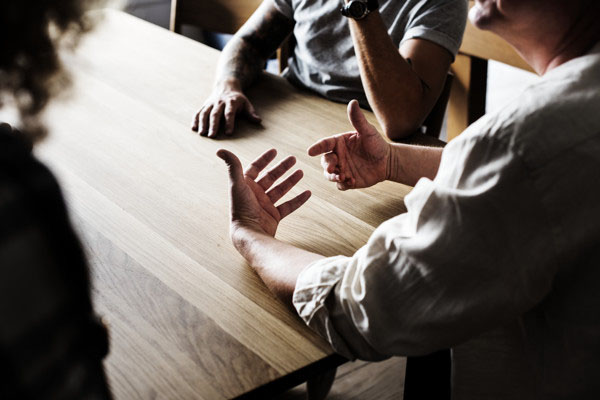
Sometimes people don't like to hear that and they're not ready to hear that. A bit like me, not ready to hear that hope quote, but eventually, people come around to realize that or that you hope that they do. The other thing that reminded me when you talked about disabilities, it's an incredible one, she went to school with my sister and sadly, she had a very rare spinal disease and suddenly came on when she was about 18 or 19 and paralyzed her from the waist down. By the time she had an operation, that was it. She went from being a normal student to her life changing.
It was 2019 when she decided she was going abseil down this ridiculously huge tower in the South of UK called the Spinnaker Tower. It's about 500 feet, 170 meters, it's tall. She wanted to raise money for herself for what they call an exoskeleton, which helps people paralyzed to walk, but it was like £80,000 pounds, which is over $100,000, $120,000, something like that. You'd think some people would be like, "I can never afford to get that money." She went at it. She went doubled down. “How can I do this?” She was doing bake sales, lotteries, and loads of little events. Gradually, the money was creeping up. She said, "I'm going to abseil.” With no working legs, nothing working below the waist, "I'm going to do this and I need people to do it with me and ask people to sponsor you to raise money."
I'm completely petrified of heights, ridiculously so. I said to my sister, "If you will do it, I'll do it,” thinking she's also petrified and she is never going to do it. She said, she was going to do it. We ended up doing it and we raised a lot of money for her, but it reminded me of something which is often key in our motivation sometimes, which is the goal must be bigger than you. For me, every time I've felt like being scared and I was and I did have a little cry, I would think she's doing it and she can't walk. All you have to do is get yourself over that ledge and abseil that. It wasn't fun. I did it, but to overcome a fear, as everyone here will know who's got a fear, is a huge undertaking, but I kept thinking of her. She was also scared of heights and yet she managed to do it. She didn't even have her feet to push against the tower as she was going down. If the wind came and took her, she just swung there. We were watching and I was thinking, "This is insane." We all did it, but she did it and she was very inspirational.
It's amazing when you have somebody who can inspire you to do something like that. Their courage is what keeps you going. It says, "This is what I need to get out there, step out of my ledge, and do that thing that is scaring me." I have a question about your adventurous spirit because there's something about this adventure-seeking and your craziness. I want to know if it was always there or if it was something that has evolved out of this feeling of like, “I need to do some things that get me out there and experience life more fully now that I know that life is fragile.”
The answer is no. It was a result of staff. It was always there. Those things are reminders to me, so my best friend, I saw a quote that said, "I'm living for her because she doesn't get to anymore." What a disgrace it would be for me to stop living while I have a chance. When I got to 36 and 28 days, I said to my husband at the time, "Every day is a day she doesn't get." That's a fact, but I took a double down on that, but I was already living life to the fullest. I moved to Australia because I always wanted to live overseas, explore, and have an adventure. The craziness has always been there and it’s also something that my parents has always been there.
I'm very determined, but it's important to realize that no matter how determined we are or whatever characteristics we have that look like they're positives for us. When you're going through trauma and tragedy, it almost doesn't matter. You've got to let yourself feel what you need to feel. You've got to process the things you need to process in your own time. Sometimes the power of positive thinking is not that practical for some people, and myself included. There are times and seasons for all things, but this determination I've always had.
One of my first coaches, a few years ago, and I was writing a list of things I'd made happen and it ended up being long and I hadn't even thought about that before. I didn't even think I was one of those people, but I am one of those people at times. The other thing I don't like is to be told that I can't do something. From a child, I was always seen as slightly naughty and mischievous because I wanted to do kids’ fun stuff. The grown-up rules were boring. I would often break them not through any sense of rebellion genuinely. I didn't want to be a rebel. I was like, "That's stopping me to do what I want to do, so I'm going to ignore it." It has come in useful when I've had to get through some of this stuff.
I love that insight. It's like seeing where all this comes from and see how it manifests itself in who you are. There was something about resilience that I wanted to come back to, and my mind escaped me, so I'm going to let that slide. When you sit here and you say to yourself, "How did I get to all this? What have I learned about myself? What do I want to share with people what I've learned about myself?” What are those things that come up? What are the big lessons, if you were to summarize them?
There's so much. There is all that stuff. One of the big lessons about resilience through all of this is that now when I'm talking to people about it, you need resilience for the good, not just to pick yourself up. There's so much now. Let's talk about COVID, resilience, and many people suffering, having to get back on the horse and keep going, all the rest of it. There's a space for that reactive stuff when you have time for it, but it shows us even more importantly to be prepared and employing some of these strategies that I talk about is you can do this before things get bad.
Your motivation in life must always be bigger than you.
Also, for example, for entrepreneurs, business owners, maybe for athletes, I've coached athletes and other people who are doing tough things, but that positive, you need to build resilience for the good as well as the bad. It's always needed and that's quite an interesting thought that came to me. That was one of my lessons. The other lesson would be in all of this stuff and the great stuff I've done, as well as the stuff I've endured. A lot of this stuff comes down to the strategies, which are support. You need support. No one can do this alone.
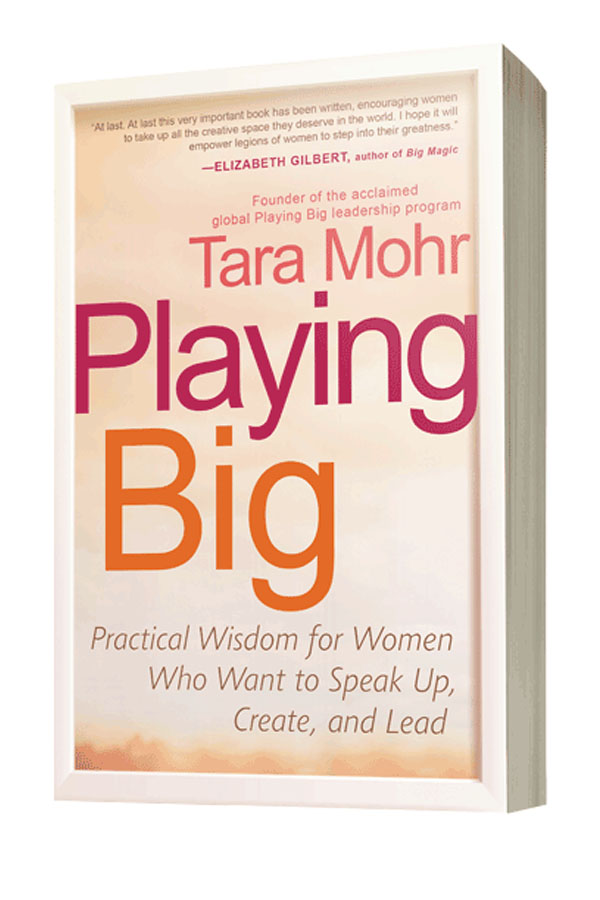 When I was teeny tiny, one of my first phrases was, "Do it myself." I do not do that. I like to be able to, but it's important to get that support. Everyone knows or lots of people think we're the average of the five people we spend the most time with, choose them wisely, build your team, and ask for what you want. We're not taught, certainly not in the UK, to ask for what you want. There's a phrase, I want doesn't get because that's trying to teach a child to say, "Please, may I?" rather than, "I want that," but ask for what you need from people.
When I was teeny tiny, one of my first phrases was, "Do it myself." I do not do that. I like to be able to, but it's important to get that support. Everyone knows or lots of people think we're the average of the five people we spend the most time with, choose them wisely, build your team, and ask for what you want. We're not taught, certainly not in the UK, to ask for what you want. There's a phrase, I want doesn't get because that's trying to teach a child to say, "Please, may I?" rather than, "I want that," but ask for what you need from people.
People love to help and there is no shame. No one does this alone. That's a huge lesson for me and I've already talked about some of that make the goal bigger than you stuff, that can help in beliefs like building up your belief and doing something like that challenge shows you what you can do, which gives you evidence to draw on later. It's like, “Go out and find these things.” For resilience, go out and find the things that scare you a little bit, so you've got something when you need to do something bigger. Those are some of the things that I've learned about myself.
Every one of them is like gold. It's the reminders we need to go forward. I did remember what I was going to say about resilience and it came from what you were saying. It's part of the foundation. I think of resilience is about this reflecting and having gratitude for all the amazing things that you have accomplished, and that helps you to see that you have been able to survive and to thrive in the past. It gives you maybe the energy to move forward and then I would love to have your thoughts on that.
It's one of the huge things when I was talking about the ways I did a little video a few minutes long about the way successful people think. One of them is this have rather than have not mentality, so you're focusing on what you do have and how you can make the most of that. Whether that's resources, time, money, skills, whatever, rather than, "I don't have this," and comparing yourself endlessly with other people. I said in that video, "Some people call this gratitude and it's important."
The interesting thing when I was going through a lot of that stuff is that you can just be suffering and still have gratitude. That doesn't cancel each other. They're not mutually exclusive and you can be suffering in pain and need someone to understand you and meet you where you're at. Don't go saying to people, "Look at what you do have." That's not helpful. They may be doing that. That's not going to take away their trauma and pain, but it can help to remind you when you're in that state but also as a daily practice. I practice gratitude daily. It's part of one of the other strategies that I talk about, which is compassion for yourself and for others. That's not expecting yourself to be the same as you were yesterday, when yesterday was a good day and now suddenly COVID or suddenly the bottom's dropped out of your world. This compassion for yourself is a huge one and gratitude comes into that, and looking at all the things that you've done.
I was going to write an article. I was thinking about lessons learned through chemotherapy. I started listing all the stuff I'd done whilst I was in chemotherapy. I was like, "That's pretty good but I'm so grateful for that." I went and learned to free dive. I couldn't do my campervan trip around Europe, so I said, "What can I do?" I've had my operation. I've got to recover. When can I travel again? Badger the doctors, bless their hearts for their patience. I went to Thailand and learned to free dive, which is diving without any apparatus. I learned to get down to 28 meters on one breath and learned that in five days. I'm desperate to get out there and try it again. I've been scuba diving for years, but that was different. It was, "I've been wanting to do it for about twenty years, but didn't think that I could. Now I thought I'm going to give it a go," so I did that.
I wanted to do a multi-day solo hike and I booked this conference in the States and decided to add on a few couple of weeks to make it a holiday. I went and did this multi-day hike. It was horrific and I was struggling because I was on chemotherapy and it was in one of the heat waves, so it was very hot. I was carrying about 50 pounds as well as water. It was tough, but I remember that gratitude of my legs is working. A few years ago, I could not walk. They're working now. My friend, she can only walk with this exoskeleton, so I can walk. Even if it takes me and it did because it was a very hilly, mountainous kind of trail I did over five days. One mile at one point took me 1 hour and 15 minutes. That was tough and there was a lot of cursing, but again, there was a lot of gratitude within that. It made me realize when I got to the top of that hill. I felt the breeze then because I was up higher and I had a beautiful view, and then you lurch between these moments of, "This is beautiful. I've got to put my boots back on and carry on."
I'm ready to sign up for your next adventure whenever we're going to get a chance.
When COVID finishes and something I do want to do is, I'm passionate about it for a long time, combine the outdoors with the coaching experience. Anyone will know there's something very intensely freeing about the outdoors, when we're allowed to travel again. It teaches you gratitude for the small things. I feel caught in a rainstorm and you get soaked to the skin, and all it takes is for the sun to peep out of a cloud for a bit and that bit of respite, and you suddenly become the most grateful person in the world. It teaches a lot about carrying on as if you had no choice because the weather doesn't care if you're sad and depressed or if your dad died. The ocean does its thing regardless. It teaches you that pushing on through when you think you can't, and then you sit and think, "I did that. That was pretty great." It doesn't have to be extreme.
I have one last question for you. What is one book or books that have had an impact on you and why?
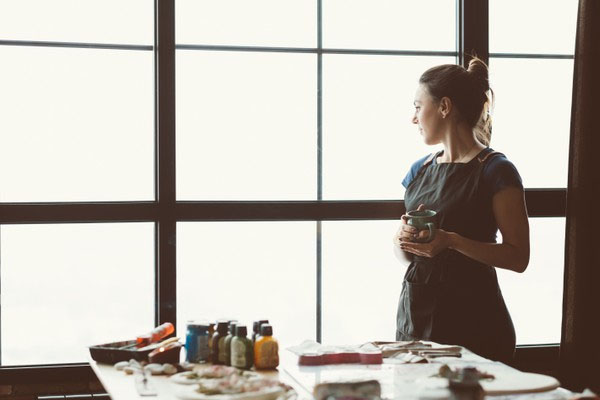
The first one that I'll mention is Playing Big by Tara Mohr. Some people who are reading will know she's an incredible coach and she mainly coaches women. For this book, I encourage all people, men and women, to read. It was written for women because we know that there are still challenges for women in the workplace. It's a little more specific, but men that have read it and said it's been incredible. The reason I suggest it is that it's what started me off on this path many years ago to discovering this coaching. It not only changed my life because I am one, but I've had many fabulous coaches, which have also helped change my life, so it's great. It's a nice combination between practical things and these exercises that will help you as well as it feels almost soulful. To each their own, but I like the way she's combined the softness with a very practical guide as well. I would highly recommend that, and that did have a big impact on me.
The other one that I read much more, which few people will have heard of, is called Living the Best Day Ever by Hendrik Coetzee, he was an explorer. He was South African. He dedicated his life to doing ridiculous stuff. When I say ridiculous stuff, stuff that even extreme people would think is ridiculous, including whitewater kayaking. He became a whitewater guide and if you look at those rivers in Africa, just the volume of water. He ended up doing these trips and rafting trips as well as kayaking, long-distance walking, and conquering these rapids, which had never been conquered. There's that side of it which is incredible. I'd like to learn to whitewater kayak, so that's why I'm interested.
He studied Psychology and he worked with people in Europe and was doing supportive psychological work with clients. The book has got so much almost philosophical approach to things. He started out as this guy who wants to do all this stuff and he still did it all. That was his approach to things. Sadly, it's a collation of a lot of his writings that were written after he died because he died doing something that he loved. It's an incredible book and knowing that's the case, you read it with that in mind, but he didn't know that when he wrote it. He was writing all this stuff, so it's all present and in the moment. He's got all these plans, so he's such a great teacher and I recommend it to anybody.
I'm going to be buying that book now.
If you can't get a hold of it, let me know and I'll see if I can find where you can. His very last trip was with a couple of guys from the States, so there's a lot of news stories about what happened on that trip and how he ended up perishing. That was probably quite big news in the States. It was years ago that the tragedy occurred. It's a great book. Honestly, I don't know how many pages are turned down with incredible quotes and lessons. It's crazy. I can't believe he did half the stuff he did. It's incredible.
Charlotte, this has been such a powerful conversation. I'm so thankful that you came on and you shared all these things with us. You're an amazing person. I'm so grateful to have you in my circle.
Resilience is about finding bigger things that scare you a little so you can pursue even bigger goals.
Thank you so much. That was so generous and so kind. Right back at you and I'm so grateful for you to ask me to come on and share. Anything I can do for any of the readers to help or to talk to anybody, give me a shout. On my website, the resilience stuff is on there. You can download that free. Let me know whatever there is.
I was going to ask you where people can find you and your website is the best place to find you.
Website is, like most people I go, "I've got a website. It's going to be upgraded soon." It is, but it's fine what's on there. You can see lots of pictures of adventures I do and holidays I go on and things that I do, I put on my Instagram and that's linked to my website anyway. For current, up-to-date thoughts and me sharing stuff and even great pictures, come and hang out with me there on Instagram. I usually will point to stuff that I've done on my website, including updates. The website is CharlotteFowles.com. If you go to resources on there, that's where people will be able to find the five strategies for resilience and the Instagram is @Fowles.Charlotte and it's The Executive Adventurer. That's where I am. I'd love to meet new friends through that.
Thank you again. Thank you to the readers for coming on the adventure with us. That's a wrap. Thank you.
Thank you so much.
Important Links:
- Charlotte Fowles
- Miscarriage Association
- Supercoach
- Solve for Happy
- Playing Big
- Living the Best Day Ever
- @Fowles.Charlotte - Instagram


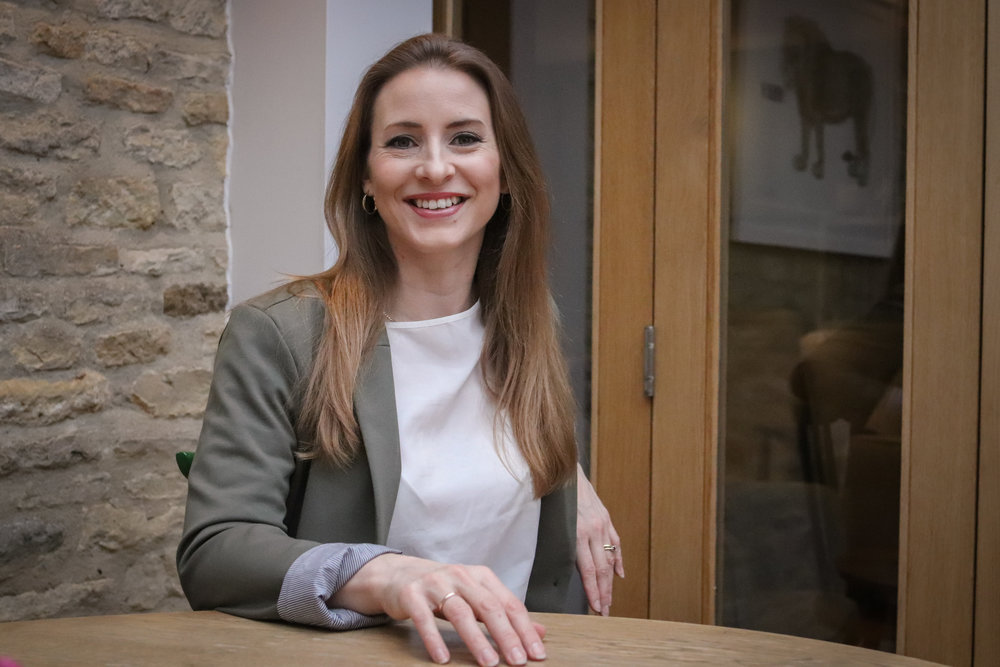 Charlotte Fowles is known as the ‘Executive Adventurer’, and she helps corporate leader who are frustrated, lost or bored, to rediscover their purpose and passion. Charlotte is an expert in resilience, having overcome personal trauma and tragedy to become the successful author, public speaker and coach that she is today. She has pushed herself completely out of her comfort zone to challenge herself physically and she is passionate about mental wellbeing and the outdoors.
Charlotte Fowles is known as the ‘Executive Adventurer’, and she helps corporate leader who are frustrated, lost or bored, to rediscover their purpose and passion. Charlotte is an expert in resilience, having overcome personal trauma and tragedy to become the successful author, public speaker and coach that she is today. She has pushed herself completely out of her comfort zone to challenge herself physically and she is passionate about mental wellbeing and the outdoors.
0 comments
Leave a comment
Please log in or register to post a comment